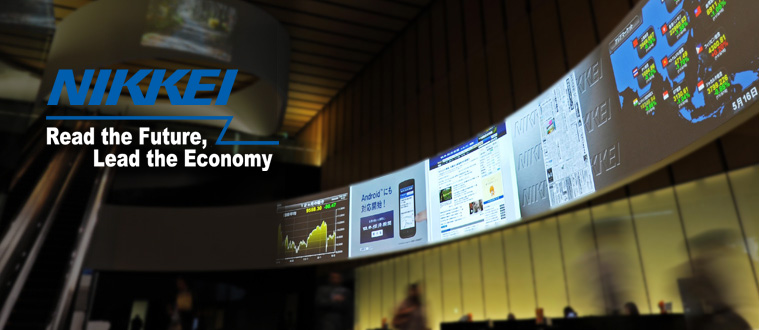
TOKYO — Japanese executives expect rising industries such as services, communications and pharmaceuticals to take the leading role in China’s economy as steel and real estate fall behind, a quarterly survey of corporate leaders released Monday shows.
Of the heads of 145 major companies surveyed by The Nikkei, 67.6% said the economic slowdown is a drag on their operations, up 3.5 percentage points from the September survey. Of these, 70.4% cited a drop in sales, while 26.5% pointed to reduced output at Chinese plants.
Companies have begun to reduce their dependence on China in favor of expanding other overseas operations. Kobe Steel is putting off investment in boosting output of forged aluminum parts in China, while Daikin Industries plans to scale back production of household air conditioners there.
However, even with the slowdown, China still enjoys economic growth of around 7% a year. While 54.4% of respondents said the country’s economy is deteriorating, 16.6% said it is expanding, up from 8% in the previous poll. The drivers of the economy are shifting as Beijing pursues structural reform rather than focusing on growth alone.
On the question of what Chinese industries Japanese executives expect to see decline, the most frequent response was steel at 60%, followed by real estate and housing as well as construction at around 50% each. The most commonly cited growth industry was services at 57.2%, with information and communications ranking second at 51% and pharmaceuticals in third place at 40%.
As for the Association of Southeast Asian Nations, 62.7% of respondents expect the ASEAN Economic Community, set to launch Dec. 31, to have a positive impact on their businesses. Indonesia was the top target for concentrated investment, mentioned by 35.9% of respondents, while Thailand was No. 2 at 30.3% and Vietnam third at 22.1%.
The bulk of respondents — 88.3% — support the Trans-Pacific Partnership trade pact with varying degrees of enthusiasm.
The poll also touched on corporate Japan’s record cash reserves. Of those surveyed, 44.8% intend to use their cash for shareholder returns, with the same number looking to pursue acquisitions. In light of corporate consolidation worldwide, many top officials view acquisitions as an important means to remaining competitive internationally.
The Japanese government’s appeals to boost wages do not seem to have swayed many executives. Just 14.5% of respondents intend to use their reserves to raise pay or otherwise reward employees. A total of 9% plan to increase base pay as much as or more than they did after this past spring’s wage talks. Meanwhile, 42.8% said they were uneasy about the pressure from the government.
Business leaders are growing more confident about Japan’s economy. Asked how the economy has changed over the past six months, 68.9% said it has improved or shown signs of improvement, up 8.1 points from the previous poll. The Nikkei Stock Average will be at 20,000 or higher in three months, 62.1% of respondents said, with 16.6% of those seeing it at or above 21,000.
Executives’ appetite for capital spending has grown. Asked about their plans for the next three years, 35.9% of respondents said they will ramp up capital spending overseas, while 34.5% said they intend to invest more at home and 25.5% expect spending to be flat. Just 2.1% plan to reduce domestic or foreign investment.
The quarterly survey was conducted between Dec. 2 and Friday.